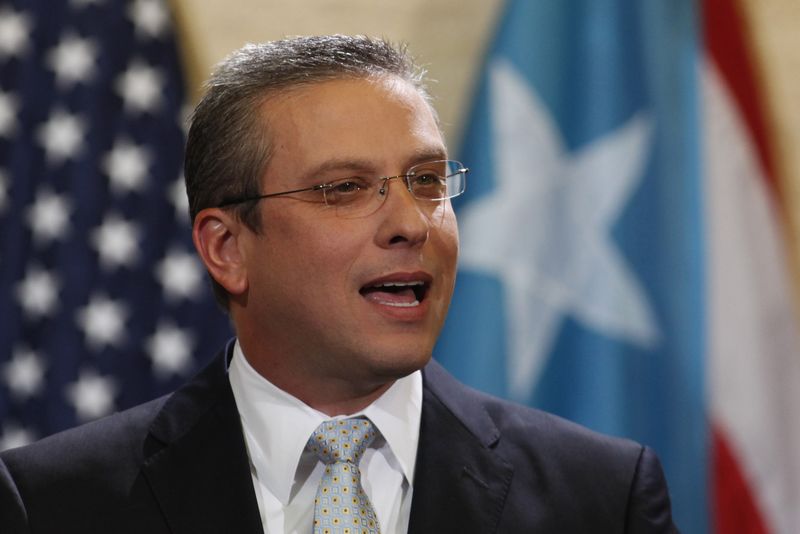By Nick Brown and Megan Davies
SAN JUAN/NEW YORK (Reuters) - Puerto Rico's financial fate was entwined with Washington politics on Wednesday with legislators from both parties pushing competing plans to address its fiscal crisis.
An island of 3.5 million grappling with a 45 percent poverty rate and $72 billion in debt, Puerto Rico narrowly avoided default last week, but faces $332 million of constitutionally guaranteed debt due on Jan. 1.
Governor Alejandro Garcia Padilla, who was in Washington, D.C., meeting with lawmakers on Wednesday, has said the commonwealth is nearing a humanitarian crisis, and that to keep providing essential services and pay certain debt, Puerto Rico must default on other bonds.
On Wednesday, Senator Charles Schumer tried to bring to a vote a bill to extend to Puerto Rico a law that allows U.S. states to put struggling municipal entities into bankruptcy. "It won't cost the taxpayer one plugged nickel," the New York Democrat said on the Senate floor.
But Utah Republican Orrin Hatch, who chairs the Senate committee with oversight of Puerto Rico legislation, blocked the vote, later introducing his own bill.
Hatch's bill, co-sponsored by fellow Republicans Chuck Grassley and Lisa Murkowski, would cut Puerto Rican workers' share of the payroll tax by 50 percent, and create a federal financial oversight authority that could spend as much as $3 billion to help Puerto Rico regain fiscal stability. The bill does not include bankruptcy provisions.
"The commonwealth's problems will not be solved overnight," Hatch said in a statement, adding that he hopes Puerto Rico will "work with Congress to provide more transparency."
In the House of Representatives, Wisconsin Republican Sean Duffy unveiled a bill to let Puerto Rico restructure debts, but only in conjunction with enhanced financial oversight.
U.S. Treasury Secretary counselor Antonio Weiss, meanwhile, made a speech in Washington, D.C., saying Puerto Rico is in crisis and needs access to a restructuring law.
The events pointed to increasing prospects for thus-far elusive federal intervention, yet little agreement on what it should look like.
Republicans have pushed federal oversight as a condition to any legislative action, while Treasury has supported the broadest measure of all, giving Puerto Rico itself - not just its municipal entities - the right to file bankruptcy.
At a news conference on Wednesday in Washington, D.C., Governor Garcia Padilla said he would support federal oversight "if it respects Puerto Rico's autonomy," adding that Puerto Rican officials would "need to be part of ... drafting that bill."
Puerto Rico's representative in Congress, Pedro Pierluisi, generally supported all three proposals in a statement on Wednesday, but voiced concern over the Hatch bill's lack of a bankruptcy mechanism.
Garcia Padilla was meeting with Congressmen on Wednesday, as well as with leaders from the U.S. Treasury. His efforts to right Puerto Rico's ship have faced obstacles at every turn. Creditors have resisted repayment cuts, while laws prevent Puerto Rico from enforcing cuts through bankruptcy. Help from Washington has seemed unlikely in a gridlocked congress.

The island also faces $120 million in legally-mandated December bonus payments for public workers.